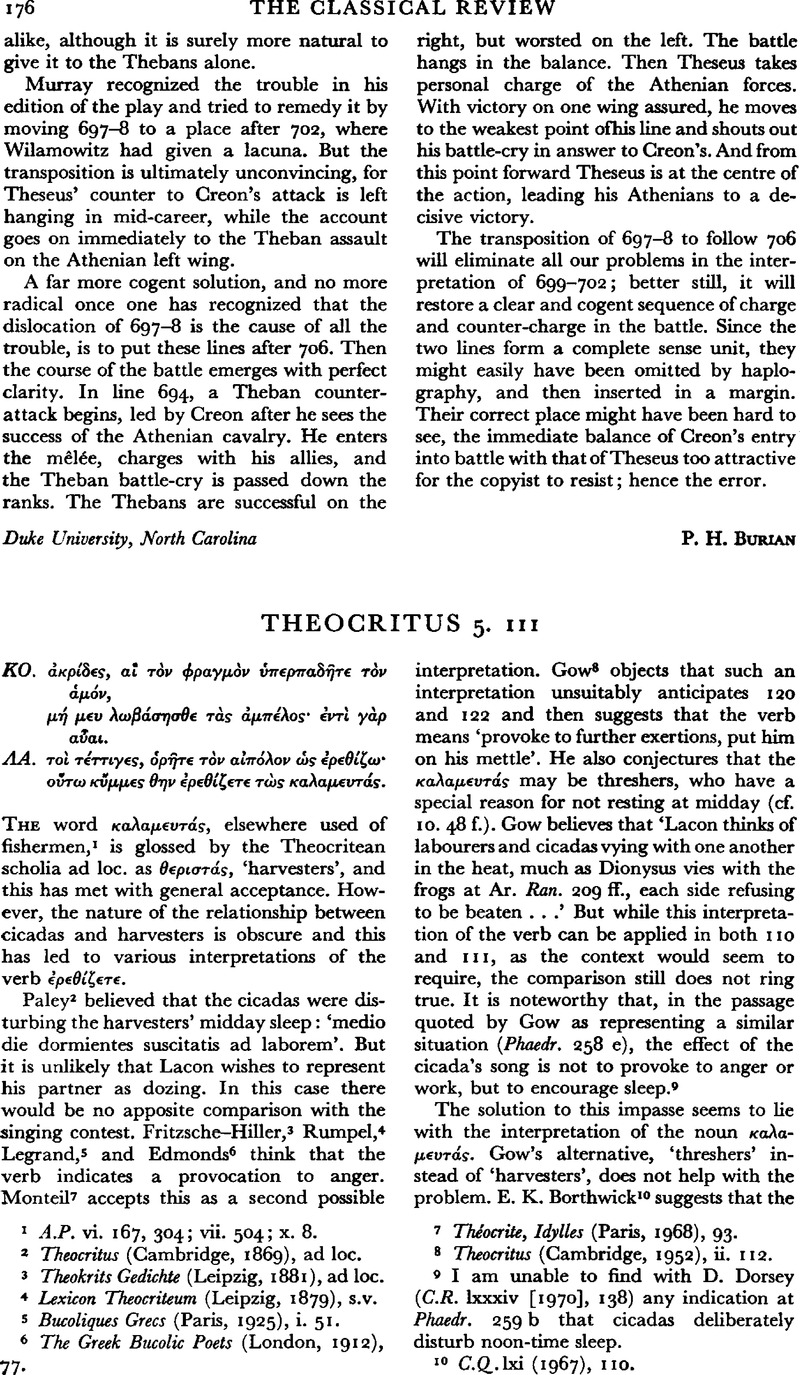No CrossRef data available.
Published online by Cambridge University Press: 27 February 2009

page 176 note 1 A.P. vi. 167, 304; vii. 504; x. 8.
page 176 note 2 Theocritus (Cambridge, 1869), ad loc.Google Scholar
page 176 note 3 Theokrits Gedichte (Leipzig, 1881), ad loc.Google Scholar
page 176 note 4 Lexicon Theocriteum (Leipzig, 1879), s.v.Google Scholar
page 176 note 5 Bucoliques Grecs (Paris, 1925), i. 51.Google Scholar
page 176 note 6 The Greek Bucolic Poets (London, 1912), 77.Google Scholar
page 176 note 7 Théocrite, Idylles (Paris, 1968), 93.Google Scholar
page 176 note 8 Theocritus (Cambridge, 1952), ii. 112.Google Scholar
page 176 note 9 I am unable to find with Dorsey, D. (C.R. lxxxiv [1970], 138)Google Scholar any indication at Phaedr. 259b that cicadas deliberately disturb noon-time sleep.
page 176 note 10 C.Q. lxi (1967), 110.Google Scholar
page 177 note 1 Legrand had singled out 5. 110–11 for the non-proverbial nature of its sentiments (Étude sur T. [Paris, 1898], 200Google Scholar). Dorsey (loc. cit., n. 11) surprisingly assumes the couplet as evidence that cicadas are proverbially disturbing.
page 177 note 2 N.H. xxxii. 122. Pliny mentions the calamites on two other occasions: N.H. xxxii. 70: ‘ranae quas diopetas et calamitas vocant’; N.H. xxxii. 139: ‘iecur ranae diopetis vel calamitis’. From these it would appear that calamites is the same animal as diopetes. The latter must be the frog believed to come down in showers but I am unable to ascertain any more about it. There may be a reference to the calamites at N.H. xxxii. 75: ‘est parva rana in harundinetis et herbis maxime vivens, muta et sine voce, viridis …’ If so, added force is given to Lacon' comment.